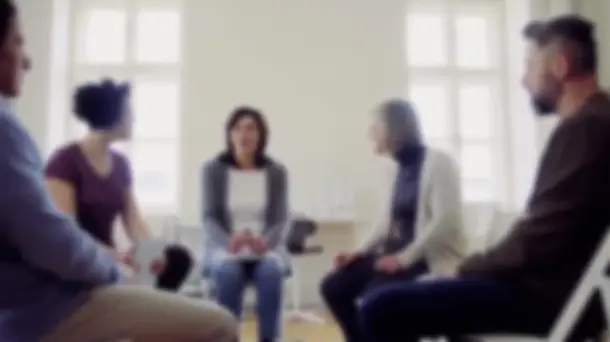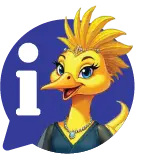Welcome to Narcotics Anonymous
What is our message? The message is that an addict, any addict, can stop using drugs, lose the desire to use, and find a new way to live. Our message is hope and the promise of freedom.

“When new members come to meetings, our sole interest is in their desire for freedom from active addiction and how we can be of help.”
It Works: How and Why, “Third Tradition”
Is NA for me?
This is a question every potential member must answer for themselves. Here are some recommended resources that may be helpful:
Need help for family or a friend?
NA meetings are run by and for addicts. If you're looking for help for a loved one, you can contact Narcotics Anonymous near you.
Subscribe to NAWS Emails
Sign up to receive Just for Today and SPAD daily meditation emails, as well as NAWS News, NAWS Updates, and more.
Never before have so many clean addicts, of their own choice and in free society, been able to meet where they please, to maintain their recovery in complete creative freedom.
Basic Text, “We Do Recover”
Recovery Quicklinks:
Service Quicklinks:
Narcotics Anonymous sprang from the Alcoholics Anonymous Program of the late 1940s, with meetings first emerging in the Los Angeles area of California, USA, in the early Fifties. The NA program started as a small US movement that has grown into one of the world's oldest and largest organizations of its type.
Today, Narcotics Anonymous is well established throughout much of the Americas, Western Europe, Australia, and New Zealand. Newly formed groups and NA communities are now scattered throughout the Indian subcontinent, Africa, East Asia, the Middle East, and Eastern Europe. Narcotics Anonymous books and information pamphlets are currently available in 49 languages.
Information About NA
Daily Meditations
Just for Today
February 20, 2026 |
Powerlessness and personal responsibility |
| Page 52 |
| “Through our inability to accept personal responsibilities, we were actually creating our own problems.“ |
| Basic Text, p. 13 |
| When we refuse to take responsibility for our lives, we give away all of our personal power. We need to remember that we are powerless over our addiction, not our personal behavior. Many of us have misused the concept of powerlessness to avoid making decisions or to hold onto things we had outgrown. We have claimed powerlessness over our own actions. We have blamed others for our circumstances rather than taking positive action to change those circumstances. If we continue to avoid responsibility by claiming that we are “powerless,” we set ourselves up for the same despair and misery we experienced in our active addiction. The potential for spending our recovery years feeling like victims is very real. Instead of living our lives by default, we can learn how to make responsible choices and take risks. We may make mistakes, but we can learn from these mistakes. A heightened awareness of ourselves and an increased willingness to accept personal responsibility gives us the freedom to change, to make choices, and to grow. |
| Just for Today: My feelings, actions, and choices are mine. I will accept responsibility for them. |
A Spiritual Principle a Day
February 20, 2026 |
In with Generosity, Out with Fear |
| Page 52 |
| “Generosity is an antidote to fear, and when we give freely, our hearts are filled.“ |
| Guiding Principles, Tradition Seven, Closing Reflection |
| Addiction is a greedy disease. Even without drugs, it leaves us looking outside ourselves for fulfillment. We buy too much (or steal!), overindulge, siphon off, and manipulate our way into more. More ego, more material possessions, more people, and, ultimately, more debt and more unhappiness. The fear that we won't get what we want plagues us. We hunger, we consume, yet we aren't filled. If more won't fulfill us, what will? We hear a lot in meetings about gratitude being a spiritual antidote to fear, but have we thought about generosity as another? If gratitude is expressing our thankfulness, then generosity is a demonstration of that gratitude. In times of pain, difficulty, or even complacency, one ideal default strategy is generosity. When in doubt or in self-centered fear or self-obsession, we tell each other, “Reach outside yourself and give. Be of service. Call another addict. Get a commitment. Up the dough we throw in the Seventh Tradition kitty. Contribute.” Practicing generosity by contributing to NA does more than fill our hearts. It gives us perspective, too, and reminds us to be humble. We ask ourselves: How can I be useful? Instead of armoring up with fear or indifference, we connect to others through our actions. Generosity isn't dependent on our fearlessness. It's being willing to give of ourselves even if we don't know how to perform the commitment perfectly, say the perfect thing, or put in the perfect amount of time or money. “I think about generosity in terms of freedom. It's a physical as well as an emotional shift,” an addict shared, demonstrating with their body. “Fear is closed off and protective, grasping and hoarding. When we're generous, we're open. The channels of mutual giving are unblocked, we're exposed to each other, and we're freer and more fulfilled because of it.” |
| ——— ——— ——— ——— ——— |
| I'm willing to focus on giving as the way out of my fear and self-centeredness today. I'll let the spirit of generosity fill my heart and share love and gratitude with another addict. |
Do you need help with a drug problem?
“If you’re new to NA or planning to go to a Narcotics Anonymous meeting for the first time, it might be nice to know a little bit about what happens in our meetings. The information here is meant to give you an understanding of what we do when we come together to share recovery…”
Subscribe to NAWS Emails
Sign up to receive NAWS Updates and NAWS News emails as well as Just for Today and SPAD daily emails.



